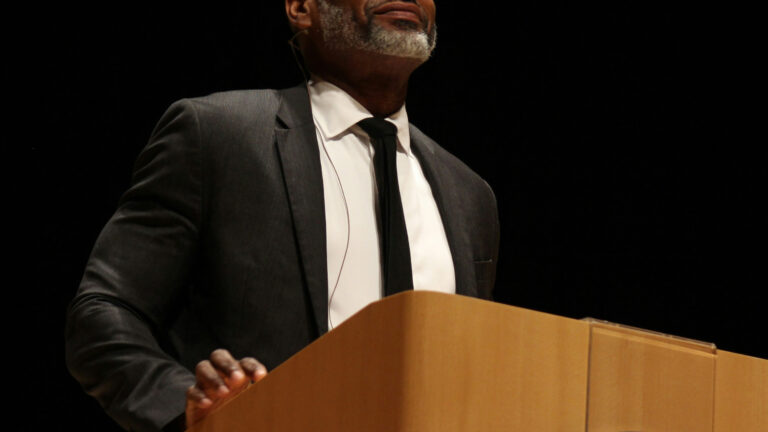My heart goes out to the families and nations that have lost loved ones by deadly diseases and are suffering due to sickness. Without a doubt, we are living in peculiar times – and it’s not just the Coronavirus that is wrecking havoc. We all know of the Ebola outbreak that killed many people in Sierra Leone and other parts of Africa. In 2018 Zimbabwe was also devastated by two diseases: Cholera and Typhoid, which were coupled with cyclone Idai disaster.
Why does a good God allow such deadly diseases to kill people?
We understand there are Christians today who are infected with COVID-19 and other sicknesses who are dying, losing those they love and experiencing the trauma of isolation. Surely most, if not all, wonder: “Why does a good God allow such deadly diseases to kill people? Is he still in control? Can he even hear the cry of the nations?” Far from mere apologetics, these are questions that Christian believers are asking in earnest.
Are Sickness & Death Part of God’s Plan?
The best place to start when we look at these kinds of adversity is Genesis 1 and 2. There we get the beautiful picture of what God intended our world to be. It is a glorious picture: life was characterised by blessings and everything was working according to God’s plan. Just as Graeme Goldsworthy named his book: According to Plan, everything was working according how God intended it to be. Thus “God saw all that he had made and it was very good” (Genesis 1:31).
Sickness and death do not ultimately belong in God’s creation.
This confirms that both humanity and creation were not designed for either sickness or death, but for the good. Therefore sickness and death do not ultimately belong in God’s creation. So where did things go wrong?
Where Do Sickness & Death Come From?
Genesis 3 presents an unfortunate scenario where humanity falls into sin and disobedience. So God justly punished humanity for their disobedience. To the woman he said “I will greatly increase your pain in childbearing”, and to the man, “Cursed is the ground because of you, in pain, you shall eat of it all the days of your life” (Genesis 3:16-18). Humanity is completely responsible for sin.
Humanity as a whole has rejected God so sickness and death spread to the whole world.
Sin resulted in two things: death and God’s just judgment of it. That’s the message of Genesis 3 confirmed by Paul in Romans 5:12. However, I am not saying that if a particular person gets infected by COVID-19 or dies as a result of it that it’s because they have done a particular thing wrong. But rather, humanity as a whole has rejected God and so sickness and death spread to the whole world. This is not a personal thing (Romans 5:12).
Bad Things Happen
Importantly, on the other side, this also does not mean Christians will not experience or suffer from the Coronavirus themselves. It is possible for somebody who is faithful to get COVID-19 and die. To put it in another way: individual suffering is not always a direct result of personal sin. In John 9 Jesus condemns this logic.
Individual suffering is not always a direct result of personal sin: Jesus condemns this logic.
In John 9:3, Jesus responds to his disciples saying, “Neither this man nor his parents sinned [resulting in his blindness], but this happened so that the works of God might be displayed in him.” To summarise, bad things sometimes happens to good people. They will happen for no humanly discernible reasons.
Is God Still In Control?
This might leave us with two possibilities: God is either not powerful or loving enough to stop COVID-19 and prevent people from dying. But Genesis 3 (and Romans 5) says we are fully responsible for sin in the world. So where does God fit in? This question hits on a tension throughout the Bible: God is completely in control yet we are completely free to act (Proverbs 16:9).
God is completely in control yet we are completely free to act.
The book of Job elaborates this matter clearly. For we can see in the early chapters of that book that Job was not guilty of any wrongdoing. Yet, despite the description of “blameless” he suffered. Job was someone who today we might call, ‘a good person.’ But in Job 4:7 his three friends link his suffering and sickness to wrongdoings. However, at the close of the book, God condemned them for offering false comfort and mistaken claims about the cause of Job’s plight (Job 42:7).
Yes, God Is Sovereign
In Job 29-30, Job is in agony. Added to this is confusion. His suffering was disorientating because he was a righteous man. He could not understand why he had to endure such cruel suffering. But God answered him in Job 38:4-5, by pointing him to his sovereignty. Like Job, sometimes we don’t understand why we are going through the suffering. COVID-19 is an example of this. Job reached the point of saying: ‘I can’t see the reason why I am suffering. I am innocent, but God denies me justice’ (Job 34:5). God responded to his case, “where were you when I created the heavens and the earth? Tell me if you know” (38:4).
God is in control. Knowing this is the best route to comfort.
God’s answer and Job’s example are good reminders that God sovereignly knows why things happen the way they do. Interestingly, God did not answer Job’s ‘why’ question? Humanly speaking, it would make sense for God to respond to Job by saying: “you are suffering because Satan asked me for permission to torment you”. Yet God points Job back to creation, where he created all things. Furthermore, Job did not have all the information we have from Job 1. For the devil asked permission from God to test him. There is a spiritual conflict happening between God and the devil, of which Job is only a small part.
Rightly, at the end of the book, Job took comfort in the bigger picture. He sheltered in God’s purposes, despite not seeing or understanding the whole picture. God is in control. Knowing this is the best route to comfort, especially during these difficult times.
Can We Still Trust God?
To know and understand that God is in total control during death, isolation and loss of our beloved ones, should be a huge comfort for us. Whatever situation we are in, we need to tell ourselves that God is in control. This should be our comfort, yes. But I don’t mean that knowing this will make the COVID-19 pandemic easy. Nor will it necessarily be a good thing in the present. This virus remains an immense problem. So how will we keep trusting God amid this terrifying and unrelenting disease?
God made himself vulnerable and suffered with us. More importantly, this suffering was also for us.
Let me suggest the following: the only reason that we can trust God during these difficult times is that God himself came into this world and experienced similar sufferings. He left his throne of peace, glory and joy and came into this world to suffer together with us. He did not run away from suffering or thwart suffering by his divine might. Rather, he chose to suffer with us – even though we are the ones responsible for that suffering.
This truth should give us patience, hope, comfort and ultimately assurance that he is trustworthy. He will never leave us whenever we are in trouble. He suffered to the point of death, a shameful public execution. Yes, God is powerful and in control of all events, yet he made himself vulnerable, and suffered with us. More importantly, this suffering was also for us.
Asking A Different Question…
So, our question should change from: “Why does a good God allow the Coronavirus disease to kill people?” to, “Why does a powerful God allow himself to be killed?” To this question we receive a clear answer. “He had to be made like them fully human in every way, so that he might become a merciful and faithful high priest in service to God and that he might make atonement for the sins of the people” (Hebrews 2:17). That is why.
Why does a powerful God allow himself to be killed?
Remember, in the beginning we said that sickness and death are God’s just punishment of human sin. Now, in Hebrews we see that Christ suffered for our atonement. The reason he suffered and died was to bear our sins and bring us back to God. His death rectified the brokenness that appeared in Genesis 3.
The Ultimate Comfort
Jesus acted as a substitute. Faith in him means that we need not fear the ultimate consequences of sin. For he already bore them in his body. This was why Jesus went to the cross and experienced death. He did that to save us from our sin (Hebrews 2:8-10). Therefore we can trust God in the face of COVID-19 because Jesus presently both sympathises with human pain and saves us from human rebellion. He is able to help those who are in quarantine, mourning and affected.
When we face the virus we need to turn to Jesus for comfort. For he is able to sympathise with us in our weaknesses, all of them (Hebrews 4:15). God may not answer the ‘why’ question in a way that we want him to, but he answers a far more important question. At the cross he won a greater solution. In his death Jesus reconciles man and God. He joined us in our suffering in order to redeem us from that suffering.
Hope Beyond Sickness & Death
There is a place we are heading to. Let’s not fixate on this pandemic. For there is an image of the world to come, where there will be no more COVID-19. This image or vision, this future, which Christ died to win for us, is one of abundant life in the presence of God. A life without the pain of miscarriages, cancer, poverty, sin, sickness, divorce or COVID-19.
The future, which Christ died to win for us, is one of abundant life in the presence of God.
Revelation 7:16-17 gives a hint of how things will be in this world to come: “Never again will they hunger, never again they will thirst. The sun will not beat upon them, nor any scorching heat. For the Lamb at the centre of the throne will be their shepherd: he will lead them to springs of living water. And God will wipe away every tear from their eyes”. Meanwhile, let’s take all the exceptional precaution measures against the pandemic as we eagerly wait for this glorious world to come.














